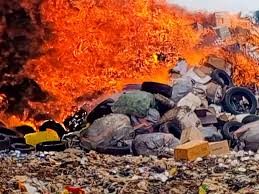Business
Council Welcomes UN’s Adoption Of 17 SDGs
The African Ministers’ Council on Water (AMCOW) has welcomed the UN’s adoption of the 17 Sustainable Development Goals (SDGs) which aim at eradicating extreme poverty and hunger by 2030.
This is contained in a statement by Mr Oseloka Zikora, Head of Communication of AMCOW and made available to newsmenon Sunday in Abuja.
The statement said the council welcomed the good news of all the SDGs, and in particular, Goal six solely dedicated to “ensure availability and sustainable management of water and sanitation for all by 2030.
“One hundred and ninety-three world leaders met at the United Nations General Assembly and approved 17 SDGs to replace the Millennium Development Goals which will expire in December 2015.’’
It congratulated the water and sanitation sector community for celebrating the inclusion of a dedicated water security and sanitation goal, saying without water, these goals could not be achieved.
It quoted AMCOW President, Mr Amadou Mansour-Faye, as saying that the centrality of sustainable management of water and sanitation in ending global poverty and ensuring sustainable development was not up for further debate.
“The benefits extend well beyond the water and sanitation domain to ensuring increased agriculture and food production, energy security, and better education for our teeming populations,’’ Mansour-Faye, Senegal’s Minister for Hydraulic and Sanitation said.
The statement noted that AMCOW played a significant role in the global advocacy for a distinct Water Security and Sanitation Goal.
Such role, it said, was based on the firm belief that this was primarily essential for ensuring secure, productive and sustainable water for all purposes, sanitation and hygiene interventions.
The statement also said that the integrated delivery of sustainable water and sanitation and hygiene interventions were pre-requisites for sustainable socio-economic development and the achievement of good health outcomes.
It said AMCOW’s Executive Secretary, Mr Bai Mass Taal, noted that development goals for poverty reduction and food security, energy and others could not be met without sustainable water resources management and sanitation.
“I am glad that AMCOW worked with partners to advocate for a water and sanitation goal right from the beginning.
“I recall with great pride the side event on water and sanitation chaired by Africa’s Goodwill Ambassador on Water and Sanitation, Liberia’s President Ellen Johnson Sirleaf.
“That event was organised by AMCOW with partners during the UN Post 2015 High Level Panel.
“This gave the water community’s call for a dedicated goal the needed impetus,’’ it quoted Taal as saying.
It added that “coming from an era of implementing MDGs and learning from our experiences, especially our success and failures, I believe we have an idea of what it will take to achieve the SDGs.
“I believe African citizens shall not forgive us as political leaders, technicians and development experts, if we fail to deliver by 2030 the commitments that our heads of state and government have agreed and signed’’.
AMCOW was formed in 2002 in Abuja, Nigeria, primarily to promote co-operation, security, social and economic development and poverty eradication among member states.
It is to achieve that through effective management of the continent’s water resources and provision of water supply services.
Business
Bayelsa Begins EIA On 60MW Power Plant

The Bayelsa Electricity Company Ltd, in collaboration with the Federal Ministry of Environment, on Friday, commenced the Environmental Impact Assessment (EIA) for the proposed 60-megawatt (MW) power plant.
The Tide’s source reports that the power plant project, led by the Bayelsa State Government, is in Elebele, on the outskirts of Yenagoa, the state capital.
The source also reports that the State Governor, Douye Diri, had announced plans to establish an independent power project to end the state’s reliance on the national grid and provide an uninterrupted power supply across Bayelsa.
The Director of Operations at the Bayelsa Electricity Company Ltd., Steve Bubagha Jnr., conducted the Minister of Environment, Balarabe Lawal, and his team around the project site.
Mr. Bubagha explained that the company planned to install a 60MW “plug and play” gas-fired turbine that would receive gas feed from the Oando gas manifold in Elebele.
He said the land area for the project is approximately 5.8 hectares, with 2.1 hectares currently being used.
“The Independent Power Plant is officially known as the ‘Yenagoa Power Project. This is a ‘Plug and Play’ Gas Turbine.
“What we mean by ‘plug and play’ is that the turbine is already set to be installed upon arrival from the manufacturers.
“We are only working on other components, so the turbine should be running in less than two years, or at most, in two years”, Bubagha explained.
Following the site visit, the environment minister, represented by Adimchinobi Okereke, emphasised that the purpose of the visit was to ensure the EIA process adhered to standard guidelines before granting final approval to the project.
He lauded the state government for initiating the project, noting that once completed, it would benefit Bayelsa and contribute to solving Nigeria’s power supply challenges.
Azibola Inegite, a professor and Dean of the Faculty of Science at Niger Delta University, and the EIA consultant for the project, assured that international best practices would be followed in conducting the EIA.
He emphasised that the EIA was essential for the successful execution of impactful land and environment-related projects.
On his part, the technical adviser on Print Media/Public Affairs to Governor Diri, Wisdom Ikuli, commended the Governor for his vision in executing the project.
He stated that the 60MW power plant would help reduce the state’s frequent power outages and boost business growth, thereby accelerating industrialisation.
A key part of the minister’s visit was the “Stakeholders Engagement Scoping Workshop for Environmental Impact Assessment of Proposed Gas Powered Plant and Gas Delivery Pipeline in Bayelsa State”.
The workshop brought together stakeholders from Elebele, whoch include the host community, and Kpansia, an impacted community in Yenagoa Local Government Area.
Business
Firm Unveils Solutions To Oil Logistics Challenges

A firm, Fortune Global Shipping and Logistics Limited, said it has concluded plans to unveil an excellent and cost-effective logistics solution for oil and gas logistics, project cargo, customs clearance, consolidation, and construction, among others, in Lagos State.
Announcing this in a statement on Friday, the company said the initiative would be unveiled during the 2025 Sub-Saharan Africa International Petroleum Exhibition and Conference.
It stated that the event is billed to take place in Lagos this week.
SAIPEC is an annual global event which focuses on harnessing a sustainable African energy industry through partnerships.
Fortune Global explained that the exhibition promises to engage with other key industry stakeholders, decision-makers, and experts across Sub-Saharan Africa’s energy supply and value chain.
“We invite you to experience more and find out about Fortune Global’s latest innovations in oil and gas logistics. Connect with Fortune Global Shipping and Logistics Limited at the Exhibition Booth N21, Eko Convention Centre, in Lagos”, the statement stated.
Business
Nigeria, Still Africa’s Largest Economy – World Bank

Nigeria remains the largest economy in Africa going by Gross Domestic Product (GDP), in spite of the challenges faced by yhe country’s private sector.
World Bank’s Country Director for Nigeria, Dr. Ndiame Diop, who confirmed this at the Country Private Sector Diagnostic (CPSD) and Stakeholder Engagement in Abuja, Friday, said while Nigeria receives far less Foreign Direct Investment (FDI) than its potential warrants, especially in comparison to countries like Indonesia and South Africa, it continues to hold its position as Africa’s biggest economy.
He said the CPSD report, set to be released in the coming weeks, will reveal the impact of private sector constraints on economic growth.
Diop noted that if targeted actions were taken to remove these obstacles, Nigeria’s economic potential would be significantly enhanced.
He explained that the current macroeconomic reforms have created a favourable environment for such changes.
He cited the country’s recent economic stabilization measures, particularly exchange rate market adjustments and improved access to foreign exchange, as critical steps that have already enhanced investment conditions.
The Country Director outlined four key sectors where strategic reforms could unlock massive investment and job creation.
He stayed that in the Information Communication Technology (ICT) sector, investment opportunities worth up to $4 billion could be realized, potentially creating more than 200,000 jobs.
In agribusiness, reforms could unlock $6 billion in investment and generate over 275,000 jobs.
The solar photovoltaic (PV) industry holds the potential for $8.5 billion in investment and more than 129,000 jobs, while the pharmaceutical sector could attract $1.6 billion and create more than 30,000 to 40,000 jobs.
For the ICT sector, he identified the high, unpredictable, and inconsistent right-of-way fees, levies, and informal charges, comprising 30 to 70 per cent of broadband rollout costs, as a major barrier.
According to him, addressing these regulatory inconsistencies would be a game-changer for broadband expansion.
He acknowledged that the National Economic Council has recognized this issue and that progress is being made through a World Bank-supported initiative.
He also noted challenges such as vandalism, limited financing for rural broadband expansion, and the need for competitive access to wholesale fiber.
Dr. Diop further noted that efforts are underway in collaboration with government agencies to resolve these issues, and the World Bank, the International Finance Corporation (IFC), and private investors are prepared to support broadband infrastructure development.
On solar power, Diop described Nigeria’s energy sector as difficult but noted that renewable energy access, particularly solar PV, has been a bright spot.
He explained that private sector investment in renewable energy has historically been hindered by high costs and unviable tariffs.
However, blended finance mechanisms supported by the World Bank and IFC have helped bridge this gap, making off-grid solutions more viable.
He noted the DES project, which aims to connect 17.5 million households and businesses to solar power, as evidence of growing private sector interest.
While the solar industry is expanding, he stressed that reforms to improve Nigeria’s grid electricity supply remain crucial for industrialization.
On her part, the Regional Director for Central Africa and Anglophone West Africa at the IFC, Dr. Dahlia Khalifa, stressed the importance of consistency in regulatory policies, particularly in customs duties and revenue agency fees.
She noted that unpredictability discourages private sector investment, as businesses rely on stable regulatory environments for strategic planning.
-

 Sports3 days ago
Sports3 days agoA’ Ibom’s Ready To Host Niger Delta Sports Festival-Eno
-

 Oil & Energy3 days ago
Oil & Energy3 days agoNNPC Debunks Explosion Claim In Warri Refinery
-

 Rivers3 days ago
Rivers3 days agoNAFDAC Destroys N4.7bn Worth Expired, Substandard Products In Rivers
-

 Sports3 days ago
Sports3 days agoCity’s January Spending Propelled By Fears Of Transfer Ban?
-

 News3 days ago
News3 days agoAccess CALM Fund To Convert Vehicles To CNG, FG Urges Nigerians
-

 Politics3 days ago
Politics3 days agoLG Autonomy: NBA To Host Talks On S’Court Verdict Implementation
-
Education3 days ago
Council Boss Charges Corps Members To Promote Peace
-

 Sports3 days ago
Sports3 days agoLASG Tasks Officials, Athletes On Maintenance Of Upgraded Sports Facilities

